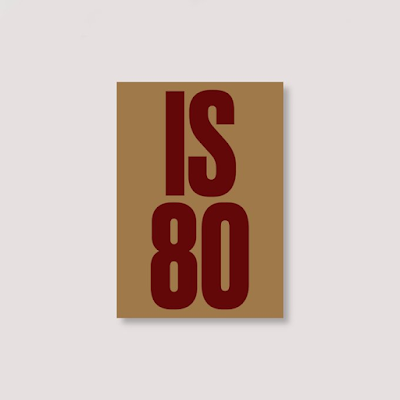This post: Pages:
Robert Sheppard: Selected Poems (History or Sleep) - the de-selected poems
and the next Pages:
Robert Sheppard: How I selected History or Sleep: Selected Poems
talk about the problems of putting together my Selected Poems, History or
Sleep, still available from Shearsman. There are different problems in selecting
the work of another poet, and I talk about some of the problems I had with the
poems of Paul Evans, whose selected, The Door at Taldir is also
published by Shearsman: Pages:
Paul Evans' Selected Poems and Lee Harwood's Collected
(robertsheppard.blogspot.com) .
Now I am selecting poems by
Mary Robinson, and I’ve been sharing some thoughts as well as very rough
drafts of texts for the book's intro in various posts beginning here, where you will find links to all the other posts: Pages:
Selecting for a Selected: The Poems of Mary Robinson 1
(robertsheppard.blogspot.com). (Also for Shearsman!) Do
have a look after reading this one.
One poem has been removed from my list already. This I’d
hoped to keep, partly because another selected Robinson doesn’t have this poem in it. I
have read all of Robinson’s poems in her 1806 three volume Poems, only to select
many of the poems also in the Judith Pascoe selected (see my bibliography), although
I have distinct plans for the long political poem ‘The Progress of Liberty’,
which is usually represented by the excerpts Mary Robinson published as
separate poems. I also include two late elegiac poems at the end of the book, writing in illness and close to her death, which I've not seen elsewhere.
Here’s the poem, lines to Robinson’s daughter (who remained loyal to her mother, and is partly responsible for collecting Robinson's work, ultimately, for us). I thought
it rather affective, but I think the theme of parenthood is covered more
movingly in her ‘Lamentation for Marie Antoinette’ and in her poem on the birth
of Coleridge’s son (Derwent, by the way). I don’t want the poem to
completely disappear, so here it is. Its absence frees up space for more of ‘The Progress of Liberty’, which can only be a good thing, in terms of my appreciation of Robinson, and for the originality of my selection, which is the focus of this post.
Lines to
Maria, my Beloved Daughter
Written
on her Birth-Day, Oct. 18, 1793
To paint
the lust’rous streaks of morn,
Along the
pale horizon borne,
When from
AURORA’S opening eye
Effulgent
glory gilds the sky;
Or yet a
softer theme to sing
Of purple
evening’s humid wing;
To trace
the crystal car of night
Along the
plains of starry light,
Where the
chaste Goddess bends her way,
Diffusing
round a trembling ray; –
No more
shall charm my pensive Muse,
With
transient forms, or varying hues:
This hour
my tenderer task shall be,
Sweet
darling Maid, to sing of thee!
Attend my
strain, and while I blend
The
Guardian, Parent, Poet, Friend,
Believe,
as each my verse shall prove,
A picture
fraught with truth and love,
And every
candid line impart
The
feelings of a Mother’s heart!
Oh! form’d
to soothe the wounds of Fate,
Dear
solace of my mournful state!
Thou, only
blessing Heav’n bestows
To shed
meek Patience on my woes!
Know –
that in life’s disast’rous scene,
Whate’er
my chequer’d lot has been,
No hour
was yet so dear to me
As that
blest hour which gave me THEE!
From
infant sweetness still I’ve trac’d
Thy mind,
with ev’ry virtue grac’d;
Still have
I mark’d Time’s ceaseless wing
Some new
endearing treasure bring;
While
Hope, soft-whisp’ring, bid me gaze
On
bright’ning scenes of distant days’
When, more
matur’d, these doating eyes
Should see
the lovelier woman rise,
Adorn’d
with all the modest grace
That
beam’d about thy infant face;
Yet with a
mind more passing fair
Than all
that Nature pictur’d there!
With such
a mind, so richly stor’d,
Still
may’st thou live, admir’d, ador’d!
Through
life enjoy the bliss divine
That waits
on innocence like thine!
Still
greet the morn with conscious smile,
With
tranquil scenes the hours beguile;
And, when
the busy day shall close,
Still find
a couch of sweet repose!
For me, so
long ordain’d to trace
O’er
life’s dark wild a thorny space –
Still
ev’ry sorrow doom’d to share,
Still
shall my heart those sorrows bear,
Nor will I
mourn at Fate’s decree,
If Heav’n,
in pity, spares me THEE!
NOTE ABOUT NOTES: I've been writing the notes for the edition, and I won't detain anyone with details of this time-consuming and fiddly task, best done, I think, the way I did it, in a rush of activity. Now I've put the whole manuscript away for some weeks, perhaps for the summer.
This editorial project came
out of my own (mis)use of Robinson’s sonnets ‘Sappho and Phaon’ (the whole of it is in my selection) in my ‘English Strain’ project, which I explain here: Pages:
My 'Tabitha and Thunderer' is published in Blackbox Manifold
(robertsheppard.blogspot.com), and here, where you will also
find lots of images relating to her life: Pages:
My Transpositions of Mary Robinson's sonnets 'Tabitha and Thunderer' are now
complete (hub post) (robertsheppard.blogspot.com).
*
Locating Robert Sheppard: email: robertsheppard39@gmail.com website: www.robertsheppard.weebly.com Follow on Twitter: Robert Sheppard (@microbius) / Twitter latest
blogpost: www.robertsheppard.blogspot.com



